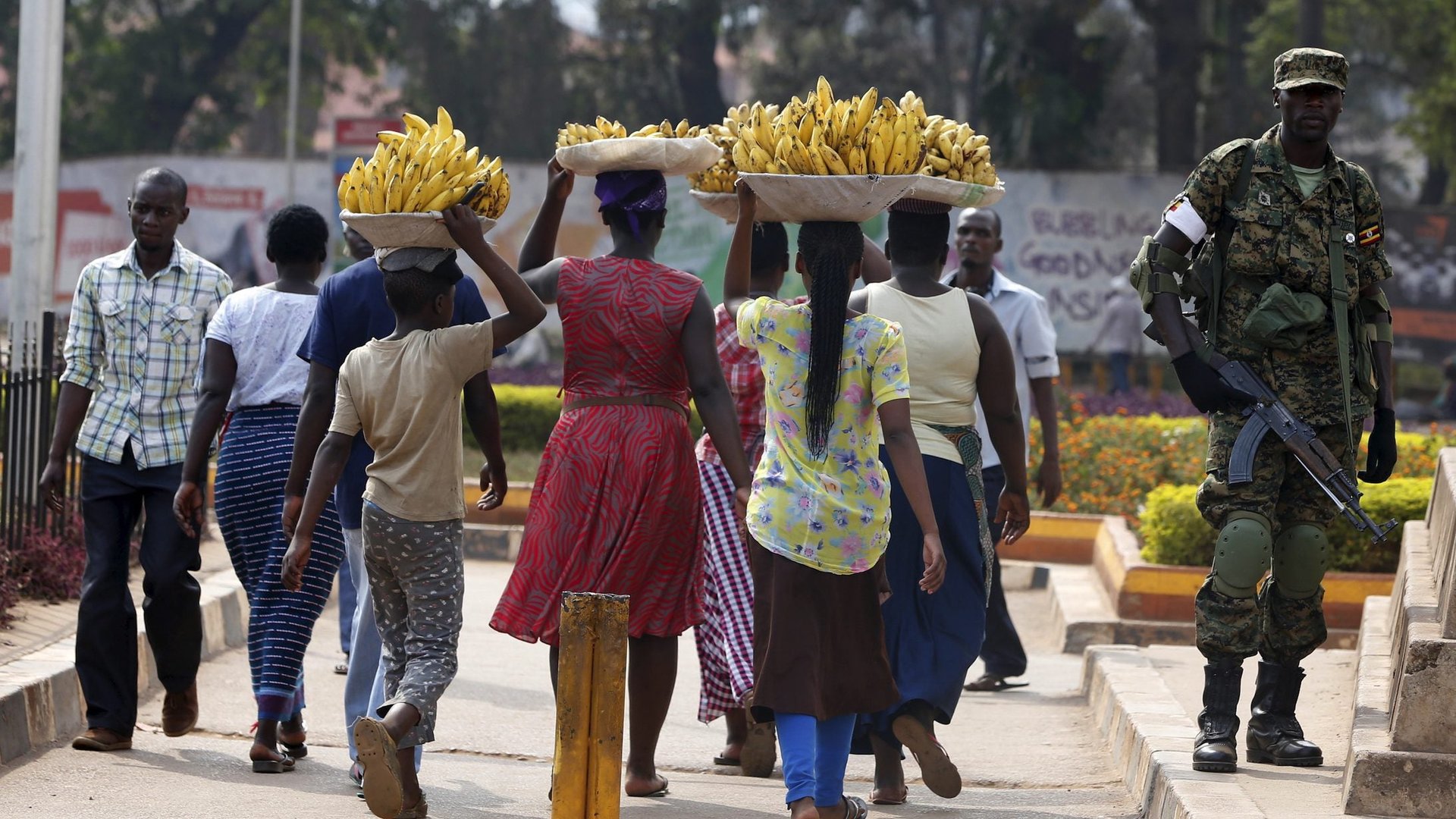A banished video of white missionaries dancing in Uganda shows the power of Africans on social media
A music video released this month by Luket Ministries, an Oklahoma missionary group working in Uganda, features five white women in traditional Ugandan dresses dancing with plastic jerry cans, knocking back deworming tablets, and eating sukuma wiki, or kale, with their hands. They sing and strut to the tune of Justin Timberlake’s song “Sexy back,” with modified lyrics, ”I’m bringing missions back.”


A music video released this month by Luket Ministries, an Oklahoma missionary group working in Uganda, features five white women in traditional Ugandan dresses dancing with plastic jerry cans, knocking back deworming tablets, and eating sukuma wiki, or kale, with their hands. They sing and strut to the tune of Justin Timberlake’s song “Sexy back,” with modified lyrics, ”I’m bringing missions back.”
The video has circulated online with comments and editorials calling out Luket Ministries for mocking Ugandan culture and daily life. The group has now taken the video down and issued a short apology to “any Ugandan that was offended.”
The backlash against the women, who have been dubbed the “dancing missionaries” and “the Luket five,” reflects a growing intolerance for simplistic or demeaning portrayals of life in African countries by foreign aid workers, volunteers, visiting celebrities, Western media, and other versions of what’s known as ”White Savior” syndrome.
“The message in this video is that we are inferior. And the goofy portrayals of our customs, such as dancing around on a truck in highly respected traditional dress, strip us of our dignity,” wrote James Kassaga Arinaitwe, CEO of Teach for Uganda, and Viviane Rutabingwa, a public health worker. The women are wearing Gomesi, a dress worn by a central Ugandan ethnic group, the Baganda, for major life events like marriage or funerals.
Social media has helped amplify African voices of dissent. Earlier this year, a factually dubious memoir about a Scottish woman’s gap year in Zambia prompted such an uproar online that the author and the Telegraph, which had published an excerpt of the book, retracted her account. When CNN described Kenya as a “hotbed of terror” last year, the hashtag #SomeoneTellCNN gained such a following that the network changed its original story and an executive flew to Kenya where he issued an apology.
“I don’t think anyone—be it a missionary or a celebrity—can be careless with their remarks anymore because Africans on social media are quick to fact check and challenge these portrayals,”says Arao Ameny, a Ugandan journalist and writer ”It always fascinates me that some groups or individuals still think they can go about saying whatever they want about Africa or Africans without expecting any pushback.”
Teddy Ruge, a Ugandan entrepreneur and cofounder of a development-themed Cards Against Humanity-style card game, JadedAid, says he first noticed this pushback in 2009 when a Florida businessman named Jason Sadler started a campaign to donate a million used t-shirts to African orphanages.
“There are more Africans online, reading, and self aware of their worth and their agency. We don’t want our children, customs, or even our problems… mocked, made fun of, or misrepresented,” Ruge says.
The social media shaming has become a virtuous cycle. (According to one study of 1.6 billion tweets in 2015, Africans tweeted about politics far more than their social media users in the US or the UK.) Each time collective online criticism causes change, people are more encouraged. “With each infraction the response is faster and more pronounced,” Ruge says.
Of Luket Ministries’s video, he says, ”I think they forgot to calculate that there is a digitally-savvy, proud, and connected Africa out there watching.” The original Luket Ministries video is no longer online, but Ruge uploaded a version with annotations: